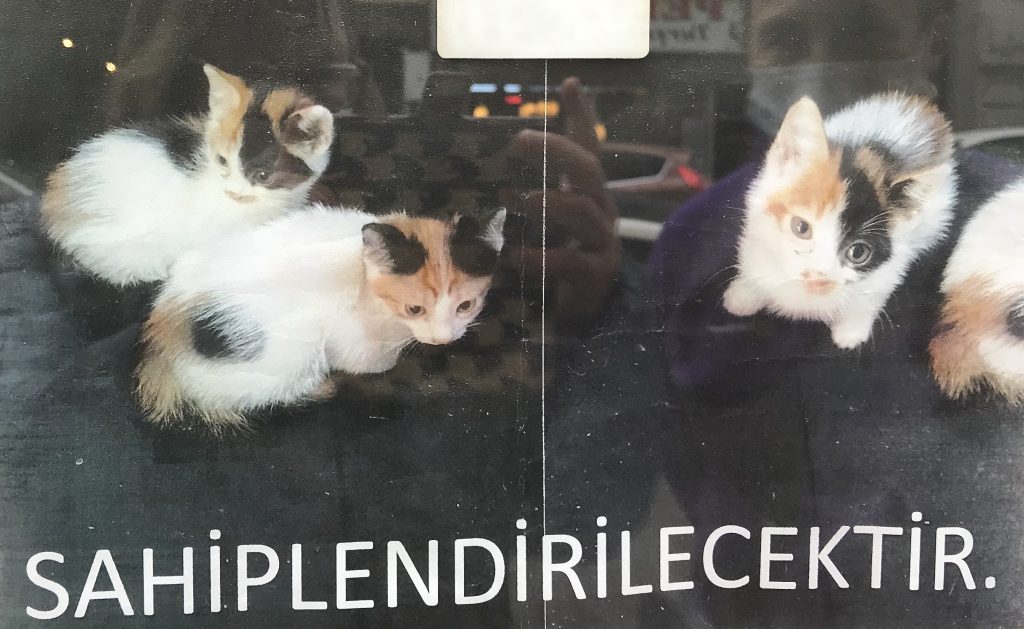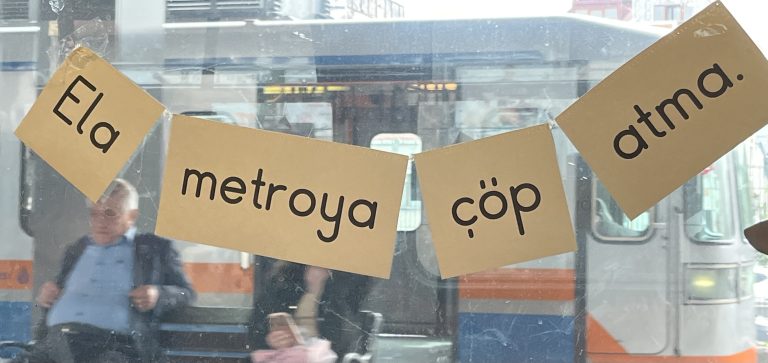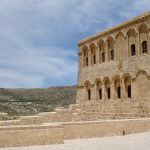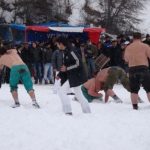The official language of Turkey is Turkish which is spoken by the overwhelming majority of the population, the main exception being elderly women in the eastern part of the country, some of whom never went to school and so were never taught Turkish. In different areas of the country local dialects are as common as they are in the UK. Along the Black Sea, for example, ‘g’s are pronounced like ‘j’s with the locals effectively saying ‘jel’ and ‘jit’ where standard Turkish requires ‘gel’ or ‘git’. Elsewhere the dialects can be as divergent as Geordie is from standard English. This is true, for example, around Antakya and in parts of Cappadocia. However, television combined with compulsory schooling for everyone are steadily eroding these differences. Most younger Turks speak standard Turkish wherever they live.
Around Antakya, Mardin and Midyat in the southeast many people speak Arabic as their first language. In the villages around Midyat there are also some Syrian Orthodox speakers of Turoyo, a language that evolved from Aramaic as spoken by Jesus.
However, the main language other than Turkish that you will hear spoken in the southeast and parts of the northeast is Kurdish (and in parts of İstanbul and other western cities with large relocated populations). Two main Kurdish dialects are spoken in Turkey: they are Kermanca and Zaza which may or may not be related to it depending on who you are talking to. Kurdish and Turkish are not closely related; Kermanca certainly shares many traits and vocabulary with Farsi.
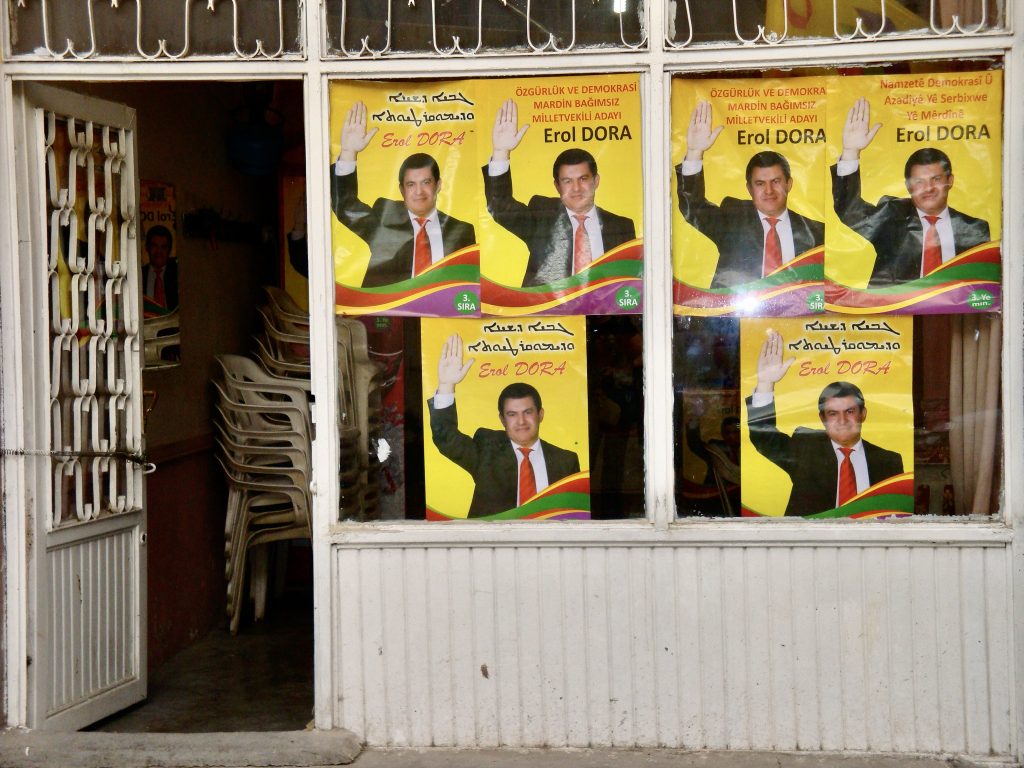
Along the Black Sea coast east of Rize you will also hear mainly elderly people speaking Lazca or Hemşince, the languages of the Laz and Hemşin people.
In remote northeastern villages around Camili (Maçahel) near the Georgian border a few people also still speak Georgian.
The Aegean islands of Bozcaada and Gökçeada still retain a few Greek speakers while in some of the remoter valleys of the Black Sea inland from Trabzon a few elderly people still remember the dialect called Pontic Greek. There are even a few seniors in remoter valleys who still speaking Romeyka, a form of Greek that appears to have evolved directly from ancient Greek while Pontic Greek is close to modern Greek.
In İstanbul a few people still speak Ermenice (Armenian) as their first language.
Backstory
Historically, what is now Turkey was far more cosmopolitan that it is today with the result that many different languages were always spoken here. In the 19th century many Turks in Constantinople (İstanbul) would have been multilingual but, just in case, signs often used multiple languages. That was even true of buildings and still today in İstanbul you’ll see many 19th-century buildings were their names and dates in several languages.
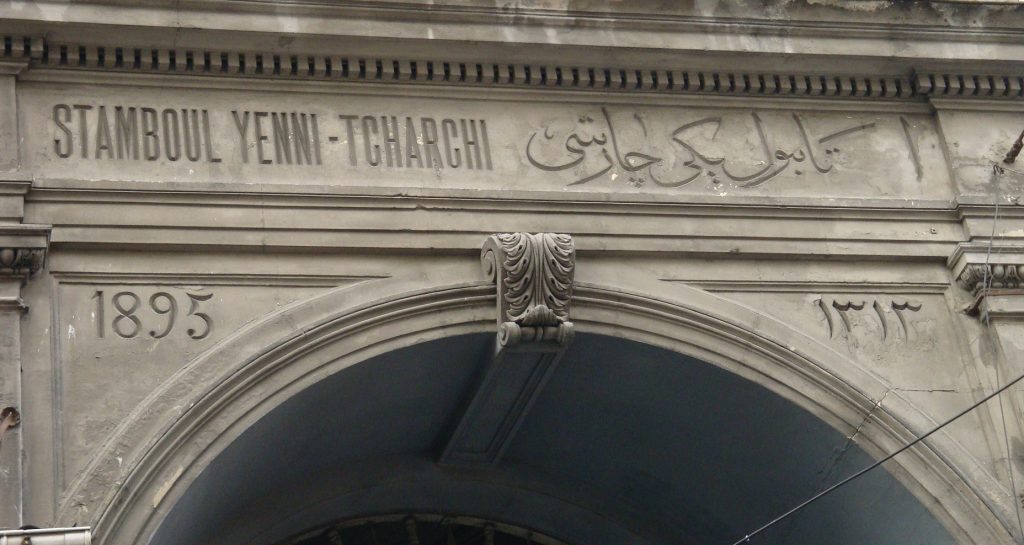
Language wars
Unfortunately language has often fallen victim to the fight to create a unified Turkey. Following the coup of 1980 the use of Kurdish was forbidden and speaking it in public was an offence even though for a large minority of the population it was their first language.
In 1990 the ban on speaking Kurdish was lifted, and in 2002 the law was further relaxed. However it was only from 2010 that written Kurdish started to appear in public places. Officials continued to make problems about the use of the alphabetic characters q, x and w that are used in Kurdish but not in Turkish, although theoretically this ban was also lifted in 2016 to “compensate” for the naming of the Third Bosphorus Bridge after Yavuz Sultan Selim, accused of having slaughtered many Kurds.
Still today all primary schooling is in Turkish, whether or not the majority of pupils speak it at home, and although there is now a small amount of television broadcasting in Kurdish there are still no publicly available Kurdish-language newspapers (although small-circulation bilingual newspapers are still produced by the Greek and Armenian communities in İstanbul – for example, Agos, the newspaper edited by Hrant Dink before he was murdered).
Unfortunately after the failed coup attempt of 2016 the greater freedom permitted for the use of Kurdish was rolled back again.
